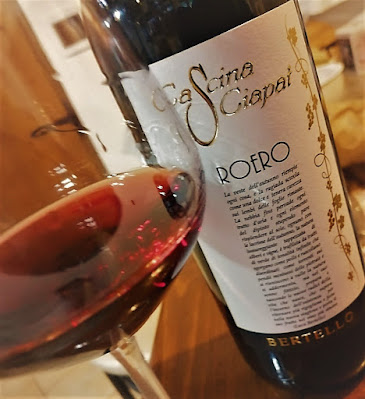Blind tasting, advice for use
Duty premise: recognizing blind wines is not the most important - and above all gratifying - skill among those that are learned in courses or over years of tasting.
It’s not for sommeliers, nor can’t be
for those who wine is "only" a great passion.
So, if you are thinking to start a course with the aim of becoming
"little" Luca Gardini (an Italian wine-diviner, the man with the
super-power to recognize any label he stands before), for you got me wrong.
However, it is undeniable that the blind tasting of a wine (so tasting it without knowing what you have in the glass) has its own charm, an almost mystical aura, which makes this exercise an almost essential ritual, at least once sometimes.
For any subjects - usually the most vain - it represents an "obvious" way to demonstrate their skills and knowledge on the subject, although often, given the numerous variables involved, it ends up being an opportunity to make a fool, taking sometimes even sensational patches.
From my personal point of view, made a further premise - that is recognizing a blind wine is not the simplest thing in the world (at least in general) - I believe it’s still an exercise of sure interest, to "train" the palate but above all the head to reason starting from something completely unknown to us.
In fact, all of us, as human beings, suffer - voluntarily or not - from any activity we make or choice that we find ourselves taking, and the tasting of a glass of wine is certainly no exception.
The label, its fame, its price but also the opinions and judgments of others, are all aspects that - inevitably - end up unconsciously influencing our evaluation.
How many times have we looked for justifications (in some cases even bizarre) about rated wines that are blatantly defective or without charachters that a level bottle should possess, or have we given them high marks despite not being - evidently - ready yet?
On the opposite, when wines of lower rank are "problematic" or still unripe, do we ask ourselves the same questions or do we boil them in less than no time?
The answer is inside the question, and
the reason is only and exclusively that we know what we are drinking.
Not knowing it, however, completely eliminates any form of external
conditioning, and prepares us in a serene way for tasting a wine and its
subsequent evaluation.
At this point, however, it might seem that blind tasting is the only way to "enoic objectivity".
Generally it’s true, but to do it as correctly as possible, it’s very important to follow - and respect - some precautions, without which you run the risk of ending up in a field without rules, where the only form of judgment is the subjective one.
For example, if we wanted to compare
(trying to recognize) wines of different types, it would be advisable to choose
them of good quality, and especially among those of producers who (at least
generally) tend to respect the varietal characteristics and the terroir.
If you taste a dark and fruity Barolo almost like a Montepulciano d'Abruzzo, recognizing
it will be an impossible task, to the limits of the supernatural.
Instead, if we wanted to make a real comparison between wines, in order to judge the quality and make a sort of ranking, it will be extremely important:
- choose them all of the same type, or, if this is not possible, among wines with similar or otherwise comparable characteristics. Drinking an Amarone della Valpolicella alongside a Burgundy and then having to put them in the ranking doesn’t make sense, because beyond their objective value they are so profoundly different that they make the judgment only and exclusively subjective
- limiting the effect induced by the vintage, therefore choosing wines all of a similar vintage or - even better - coming from vintages very similar in characteristics, otherwise, always according to your personal tastes, you would run the risk of preferring wines coming from warmer / drier vintages or colder / rainier ones
Finally, making a mix between the two types, tasting different wines by type and wanting to make a ranking, has an almost zero value, because the comparison between deeply different glasses in terms of structure and strengths / weaknesses makes the comparison impossible and senseless, bringing it back to the sphere of personal taste alone.
In this case, less experienced tasters will tend to appreciate softer and more full-bodied wines, while the more experienced ones will tend to reward balance and elegance.
How a blind tasting should then be set up - from a technical point of view - what aspects to take into consideration in order to “guess” the denomination or grape variety, as well as objectively judging its quality and value is further (and very wide) discussion topic, and I think it will deserve a separate article in the future.
Even if, beyond the charm of this type of tasting, the target to which every wine enthusiast should aim is to judge without any conditionings wines of which you know everything, in order to evaluate their intrinsic quality but also consistency, respect for the terroir and the vintage charachters.









Commenti
Posta un commento